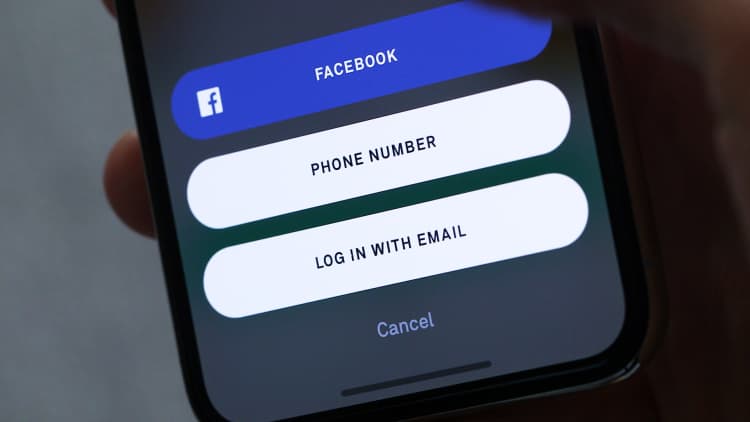Facebook on Monday announced that it removed four networks of "coordinated inauthentic behavior" tied to Russia and Iran from its services as it launches new features designed to make posts related to the upcoming 2020 U.S. presidential election more transparent.
The company said it removed three networks of fake accounts and pages tied to Iran and another network with links to Russia's Internet Research Agency, the group that was accused of using Facebook and other websites to interfere with the 2016 U.S. presidential election.
"We took down these networks based on their behavior, not the content they posted," Facebook said in a post. "In each case, the people behind this activity coordinated with one another and used fake accounts to misrepresent themselves, and that was the basis for our action."
Facebook removed 135 accounts that originated in Iran. These pages targeted users in the U.S., North Africa and Latin America. The pages posted content focused on a variety of topics, including issues such as tensions between Israel and Palestine, U.S. race relations and Black Lives Matter.
The company said it removed 50 Instagram accounts and one Facebook account that originated in Russia. These accounts published content aimed at U.S. users.
"The people behind this operation often posted on both sides of political issues including topics like US elections, environmental issues, racial tensions, LGBTQ issues, political candidates, confederate ideas, conservatism and liberalism," Facebook said in a blog post. "They also maintained accounts presenting themselves as local in some swing states, and posed as either conservatives or progressives."
In an interview with NBC Nightly News with Lester Holt, Facebook CEO Mark Zuckerberg said that China has also been found to have attempted to interfere in a number of elections.
"We do see today Russia and Iran and China increasingly with more sophisticated tactics are trying to interfere in elections," Zuckerberg said in the interview. "But part of why I'm confident going into 2020 is that we've played a role in defending against interference in every major election around the world since 2016, in France, in Germany, in the E.U. overall, in India, in Mexico, in Brazil."
In addition to the network removals, Facebook on Monday announced a number of changes it is making to prepare for the 2020 U.S. presidential election.
Facebook is going to more prominently label posts that include false information. These labels will include a gray blurred screen that says "false information" that will hide false and partly false photos and videos.
Facebook said it also plans to introduce a U.S. presidential candidate spend tracker that will show users how much each candidate has spent on Facebook ads. The company said it is also launching Facebook Protect, a new tool designed to "secure the accounts of elected officials, candidates, their staff and others who may be particularly vulnerable to targeting by hackers and foreign adversaries," the company said.
The company said it will also ban any ads that suggest voting is useless or advises people not to vote. Facebook will also label state-controlled media. Facebook will require that pages that post ads about social and political issues include a "Confirmed Page Owner" on their Facebook pages. These pages will include "the organization's legal name and verified city, phone number or website."
"If we find a Page is concealing its ownership in order to mislead people, we will require it to successfully complete the verification process and show more information in order for the Page to stay up," Facebook said in a blog post.
"The bottom line here is that elections have changed significantly since 2016, and Facebook has changed too," Zuckerberg said.
Facebook has been criticized in recent weeks for its pledge to continue running political ads, even if they contain demonstrably false information. During a speech at Georgetown University last week, Zuckerberg said he considered banning false political ads but decided against it.
Asked what would happen if a political candidate tried to purchase an advertisement containing false information with the intent of voter suppression, Zuckerberg said, "Voter suppression rules would be paramount in that case."
— CNBC's contributed to this report.
WATCH: Here's how to see which apps have access to your Facebook data — and cut them off



